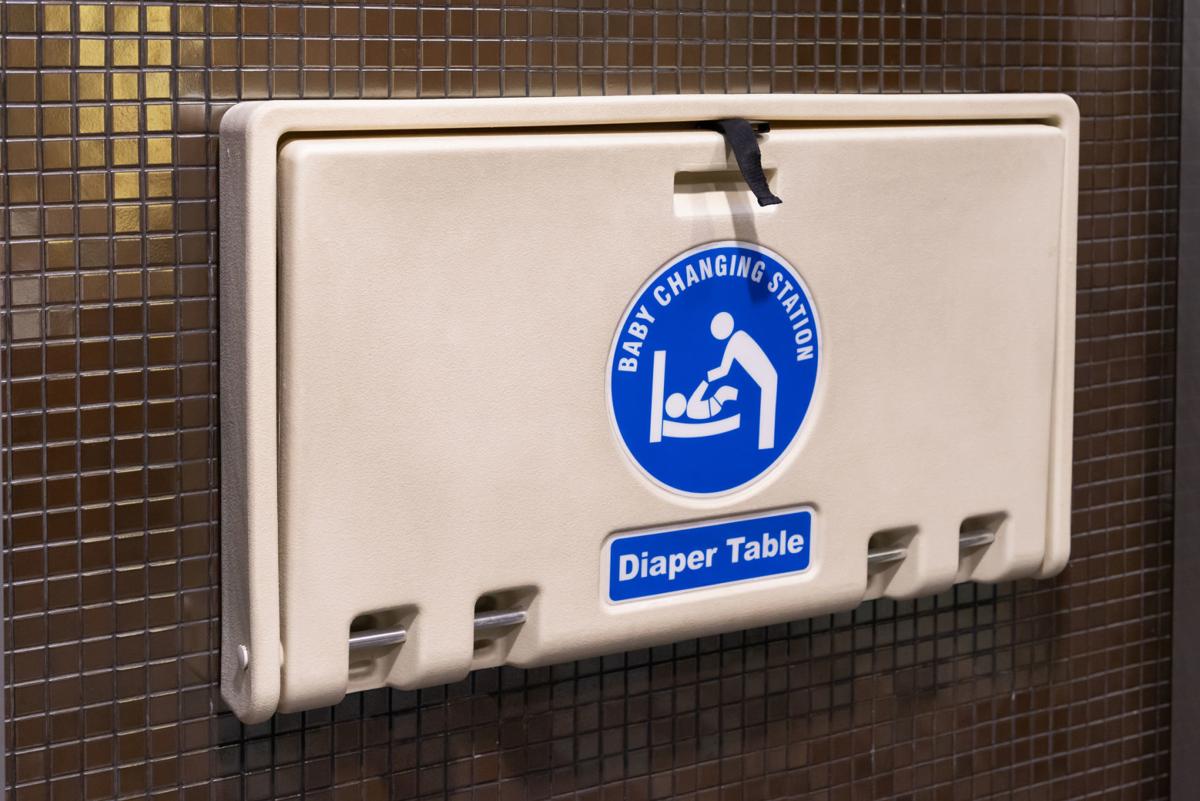PHOENIX — Answering pleas of parents of disabled adult children, a Senate panel resurrected legislation Wednesday to require that new or extensively remodeled bathrooms in public buildings have suitable changing stations so they don’t have to put their children on bathroom floors.
HB 2113 is similar to another measure that had gained unanimous approval last month in a House committee. But that legislation stalled after Rep. Anthony Kern, R-Glendale, refused to schedule a similar proposal for a hearing in the House Rules Committee, which he chairs.
So Rep. Richard Andrade, D-Glendale, agreed to scale back the scope of his measure, exempting privately owned buildings from the new mandate.
Wednesday’s vote by the Senate Committee on Health and Human Services came after parents and others detailed for lawmakers personal and health hazards created when children too big to fit on infant changing tables have to be laid on the bare floors of restrooms.
Marianne Scott spoke of her 17-year-old daughter and the fact that, for the past dozen years, she has been unable to fit on the baby-changing stations that now exist in many restrooms. Shortly after that, Scott said, her daughter was too big to change in the back of the car.
“We were soon left to change her on public bathroom floors, floors that have been walked on by shoes from all walks of life, shoes that have filth and germs being left with every step,” she said.
And Scott said the floors of bathrooms are considered so dirty they feature a hook so women can hang their purses up rather than leave them on the ground.
“But now, I was going to lay my daughter down on the very same floor,” she said.
Lisa Hyche, a nurse for special needs patients, described how she runs into the same issues when she takes patients out.
“A lot of these special needs patients are confined to a wheelchair so they can’t stand,” she said, meaning they need to be lifted and lowered. “By putting them on the floor, it’s not only hard for the person who has the handicap but also the caregiver, the nurse, whoever’s taking care of them, to literally lower them to the floor, pick them up, put them back in the chair.”
Hyche said she and a friend took samples from a floor in a public bathroom and had them sent to a lab to culture it for germs and bacteria. There were so many, she told lawmakers, that there were too many to count and an inability to even differentiate among the many varieties.
“And we’re laying these children on these floors because there’s nowhere else to lay them,” Hyche said.
Even with barriers — blankets, towels and similar items — it’s still unsanitary, she said.
Sen. Tyler Pace, R-Mesa, thanked parents and others for having the courage to come forward and disclose their stories.
Pace said that for years he sold supplies for teen and adult incontinence.
“And I’d never thought of this,” he said. “It never crossed my mind what they do when they’re out of their home.”
Kern told Capitol Media Services he does not have a problem with the revised version of the measure that is limited to state and local governments. He said his concern was having the state government impose mandates like this on the owners of private buildings.
Nothing in HB 2113 would force state and local governments to start remodeling restrooms. Instead, the requirement kicks in only when there is an entirely new bathroom being constructed or there is a “total renovation,” meaning a project that costs at least $50,000 and removes wall, floor and ceiling finishes as well as the mechanical, electrical and plumbing fixtures.





